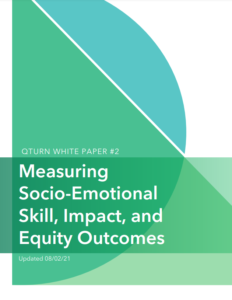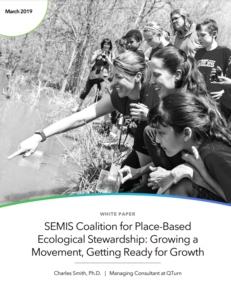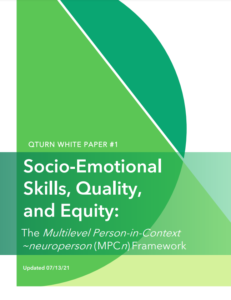Tag: SEL
The Quality-Impact-Equity Design and Methods (QDM) Toolbox was used to: (a) reconfigure existing measures for Parenting Practice Quality and Child SEL Skill to maximize reliability and validity for measuring socio-emotional skills and learning (SEL); (b) produce holistic profiles of parent and child skill at each timepoint; and (c) apply pattern-centered analytics to estimate impact and equity effects of the PC+
program as implemented in Newark.
We present steps to (a) identify the real objects we seek to represent with measurement and models (i.e., the parts of an individual’s SEL skill set and the type and amount of skill change that is likely to occur during the program) and (b) produce SEL skill indicators and measures that are feasible and valid for both CQI and impact evaluation uses.
This white paper was developed to (1) describe how SEMIS promotes social and emotional learning, (2) iterate content and language with SEMIS stakeholders, (3) and to make a compelling and scientifically grounded case for expansion of the work.
We introduce a theoretical framework designed to describe the integrated set of mental and behavioral parts and processes (i.e., schemas, beliefs, and awareness) that are socio-emotional skills and that produce both basic and advanced forms of agency. With improved definitions and understanding of SEL skills, and the causes of SEL skill growth, we hope to improve reasoning about programs and policies for socio-emotional supports in any setting where children spend time.



